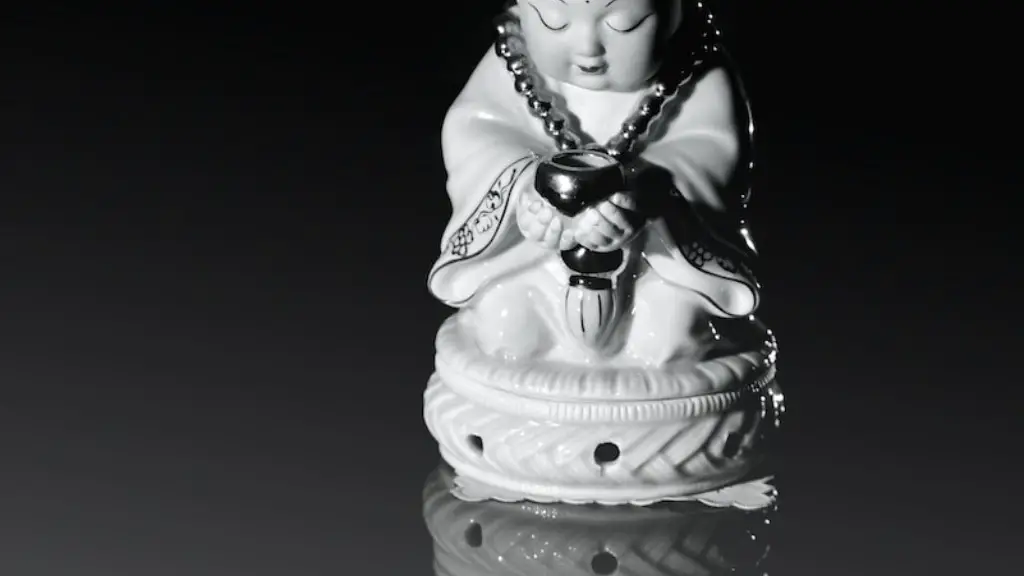Definition of Messianic Christianity
Messianic Christianity is a religious belief system and denomination that combines elements of both Christianity and Judaism. It is typically found in Jewish, Christian and Messianic Jewish communities who combine Jewish and Christian traditions, rituals, practices and beliefs. Messianic Christianity believes Jesus of Nazareth to be the promised Messiah, or Anointed One, of Israel and thus the Saviour of mankind. They place special emphasis on Yeshua’s role (Yeshua is the Hebrew name of Jesus) as Messiah and follow Scriptural teachings which are based on both the Old Testament and the New Testament.
Jewish Roots
Messianic Christianity is rooted in the Jewish culture and faith. It reflects the synthesis of the religious beliefs that were brought together during the first century when a number of Jewish and Gentile believers in Yeshua’s Messiahship began to meet and worship together in Jerusalem. These meetings lasted for several decades and finally settled into a distinct set of religious beliefs, rituals, and practices that have become known as Messianic Judaism or Messianic Christianity.
Messianic Christianity retains many of the ritual and cultural elements of classical Judaism and extends them to an acceptance of Jesus as Messiah. Prophecies and Messianic expectations of the Jewish Scriptures are seen as universal and are applied to those of all nations who believe in Jesus. Jewish rituals such as keeping the Sabbath and observing the feasts, eating kosher food and observing the Kosher laws are followed.
Beliefs
The main beliefs of Messianic Christianity are that Jesus of Nazareth was both man and God in one, living a human life, dying a sacrificial death, and then resurrecting and ascending into Heaven. Other core beliefs include the Trinity (Father, Son, and Holy Spirit), and salvation through the death and resurrection of Jesus. They do not consider themselves to be a traditional Christian denomination, but instead a form of Judaism that follows the teachings of the Bible.
Messianic Christians follow a slightly different interpretation of the Bible than does traditional Christianity. They believe that a Gentile believer in Jesus becomes grafted-in (adopted) to the chosen people of Israel and is accepted into the covenant made by God with the nation of Israel. As such, the followers of Messianic Christianity believe that the Torah (the first five books of the Bible) remains in effect for everyone, and should be followed by all believers in Jesus.
Practices
The Messianic Christian community often engages in outreach activities such as evangelism, music, literature, and special holiday events, often celebrating both traditional Christian and Jewish holy days. They emphasize living an ethical and moral life, and engaging in acts of kindness and charity, in order to bring glory to God and to spread the love of Yeshua.
Some Messianic Christians practice ritual circumcision, pray the Shema, observe the Hebrew calendar, and follow some of the dietary laws of Moses. Human traditions, such as physical circumcision and keeping the Sabbath, are seen as symbols that demonstrate their faith in the way they live their life and commemorate the covenant with God. However, Messianic Christianity rejects many of the past beliefs and practices associated with traditional Judaism such as the doctrine of replacement theology — the idea that Christianity alone is the fulfillment of the Promise God made to the ancient Hebrew nation.
Worship
The worship of Messianic Christianity is also unique, blending Jewish liturgical practices and beliefs with modern expressions of praise. Messianic worship includes liturgical items such as the reciting of the Shema, the use of traditional Jewish prayer shawls, and the singing of Hebrew songs. Messianic services bring the ancient to the modern and blend the old with the new, often resulting in a vibrant expression of faith.
The focus of Messianic worship is the person and work of Jesus, the Messiah. Messianic Christians view Jesus as a present reality, not only a faith of the past. In Messianic worship, congregants are invited to move beyond their own experience and explore ways of experiencing the Lord through its ancient faith and by connecting with the continuity of the Spirit of the living God.
Importance
Messianic Judaism allows believers to embrace both the values of traditional Christianity and the rich heritage of Judaism. It provides a deeper understanding of the biblical texts, while embracing Jesus as the culmination of both Jewish and Christian beliefs, and provides unique and meaningful ways to honor and celebrate both the Christian and Jewish religious experiences.
For those who are seeking a connection to the sacred, to deepen their faith and explore their heritage, Messianic Christianity is a valuable path to holiness and intimacy with the Lord. It is a unique and inspiring way to experience and understand the Lord in both contemporary and traditional forms.
Distinction from Christianity
Though Messianic Christianity does use some elements from Christianity and is often deemed as Christian, it is important to note the distinct differences between it and traditional Christianity. Messianic Christianity follows the Hebrew law, including the traditions and customs, that distinguish it from Christianity.
Another key difference between Messianic Christianity and Christianity is the understanding of Jesus and his redemptive mission. While traditional Christianity sees Jesus as fully human and fully divine, Messianic Christianity sees Jesus as a man who has been given divine abilities. Therefore, Messianic faith deeply emphasizes his Jewish lineage and birthright and applies the concept of Jewish tradition and law to ensure their religious practice includes gratifying rituals to honor and remember Jesus’s teachings.
Fellowship and Community
One of the major draws to Messianic Christianity is their commitment to Jewish identity and fellowship. Messianic congregations often strive to kept the traditions, customs, and faith of the Jewish people alive and proclaim the truth of the gospel in a way which honors the customs and practices of the Jewish faith. Through this, Messianic congregations not only build strong fellowship and community but help to further the prospect of religions being unified, despite minor differences.
Messianic Christianity has evolved and grown since its inception and it continues to gain adherents as its unique theology resonates with people. While there are many different shades and expressions of Messianic Christianity, practitioners are united in the belief that Yeshua is the promised Messiah, who brings salvation to all who believe in him.

